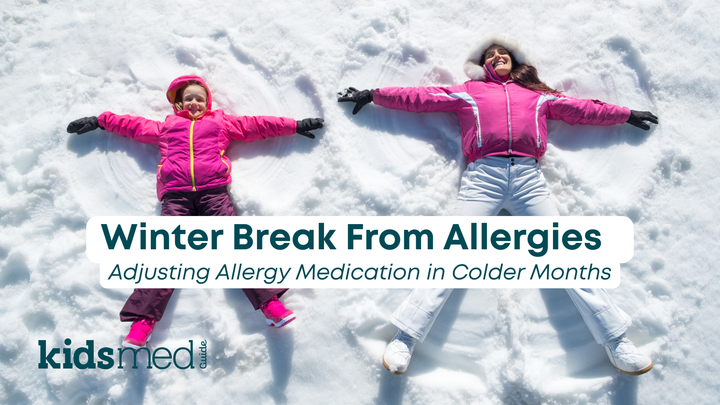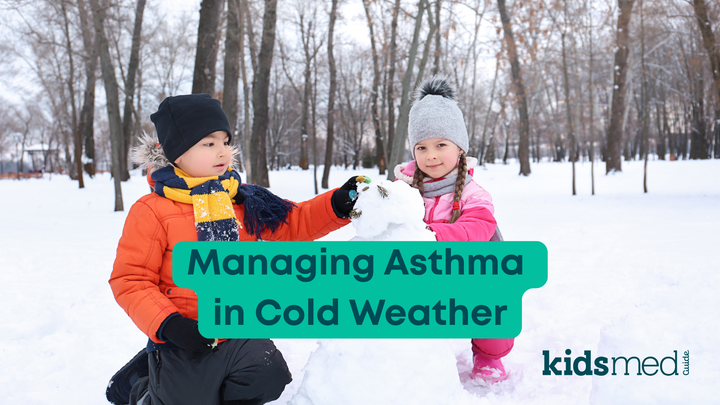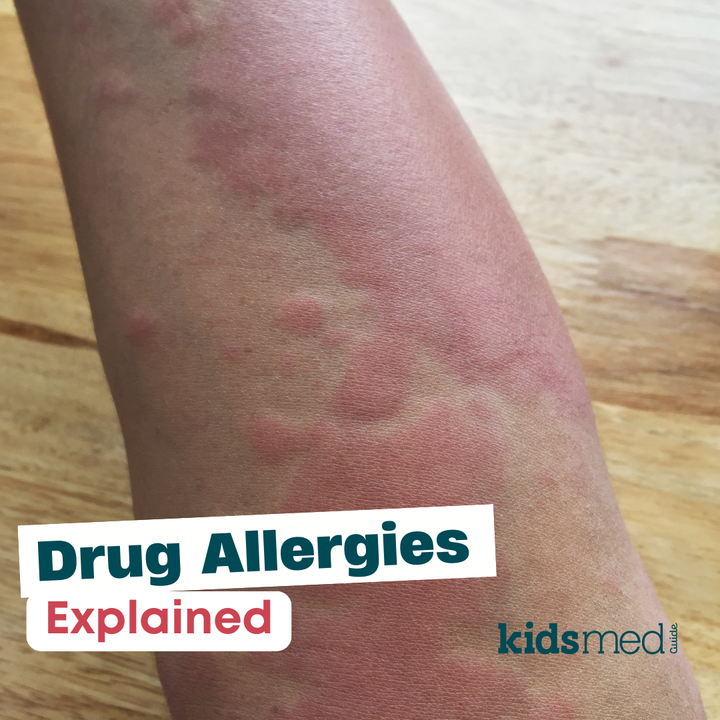Seasonal Allergies in Kids

Imagine it's the month of May. Birds are tweeting, the sun is shining, and parents everywhere breathe a sigh of relief. We made it through cold and flu season, y’all. We made it.
The kids run into the house after an afternoon playing outside, and that’s when you hear it. THE SNEEZE. Then, a sniff. Then another sneeze. No, no, no, no…NO. Not another cold! No. What the heck!
After you’ve covered your face and put your head on the counter to contemplate your life choices, you peak at the sniffling children. They don’t look sick. There is lots of eye rubbing, sneezing, and sniffling, but everyone seems otherwise OK. The sniffling and sneezing lasts for many days and even weeks, longer than a cold would, yet no other signs of illness emerge.
What is Allergic Rhinitis?
If this scenario sounds familiar, your kids are likely experiencing seasonal allergies. It sure is familiar to me—my darling cherubs started the snot-covered eye rubbing right around May 1st.
This condition goes by many other names, such as allergic rhinitis, hay fever, or spring allergies. Regardless of the term, it leads to a lot of misery!
In a nutshell, an allergy is the body’s abnormal, overreactive response to a normal thing. Think of the kind of response you get when you ask a 3-year-old to put on shoes. Overreactive and abnormal, right?
With seasonal allergies, the body recognizes a standard substance in the environment, such as pollen, as an invader that must be destroyed. The immune system releases antibodies to fight off the invader, which triggers the release of many chemicals, including histamine, into the bloodstream.
Why Do Allergies Occur in Kids?
In kids with this overreactive response, histamine and its chemical pals can wreak havoc and turn your child into a red-eyed booger creature from the Black Lagoon. Allergy symptoms in kids occur when the eyes, nose, and throat get irritated by histamine. Sneezing, coughing, and itchiness ensue.
This will last as long as your child is exposed to the allergen. In spring or summer, this usually lasts at least a few weeks, if not a couple of months, depending on the allergen in question. Tree pollen and grass pollen are two of the biggest offenders and are nearly impossible to avoid.
Allergies vs. Viral Colds in Children
In most older children, allergies are relatively easy to diagnose and treat. Take a peek at the chart below to help determine if your snot factory, I mean child, is experiencing seasonal allergies or a summer cold (aka, a virus). The typical allergy symptoms in kids are summarized in the first column. Common cold symptoms are listed in column 2.
Parents should always confirm with their pediatrician if respiratory symptoms linger or if seasonal allergies are suspected in younger children (babies and toddlers) or children of any age with respiratory conditions such as asthma or other lung disease.
Allergies aren’t common in children younger than 2 years old since it typically takes a couple of seasons of exposure for reactions to occur. Any severe persistent symptoms or trouble breathing in kids of any age are emergencies and necessitate immediate care. In particular, children with asthma typically need a contingent for allergy season built into their Asthma Action Plan.
When to Call Your Child's Doctor
If this is the first season your child has allergies, it’s also a good idea to check in with your doctor. The pediatrician can rule out other causes and help confirm your diagnosis. If they think your child needs to be seen, it will help ensure all looks well.
A provider can look at those allergy symptoms closely and personally and make the final call. Think of this as an opportunity to say hi to the office staff you haven’t spoken with on the phone or seen in person for what… a week? Two weeks? If you have young kids, you’ve likely called or visited the pediatrician at least 62 times over the winter, but it's best to pop in so they don’t forget you! (Tired mom sarcasm…)
Do Seasonal Allergies Only Occur in Spring?
For anyone reading this who got through May and June and thought - hey! Ha! Yes! We didn’t have any spring allergies; we’re good! Fear not, because spring allergies are also known as seasonal allergies, meaning they come yearly every season.
Yup, you guessed it, there are common allergic triggers in OTHER seasons! Spring is probably the biggest offender due to all the plants and grass in bloom, but seasonal allergies can happen at other times, too. Ragweed in the fall or dander in the winter, anyone?
Treating Seasonal Allergies
Treating allergic rhinitis caused by seasonal allergen exposure requires a multi-pronged approach. Ideally, children will avoid exposure to offending allergens. Unfortunately, this is hard to do with spring seasonal allergies, which are typically caused by pollen, which is everywhere!
Check out our blog post on non-drug options to treat seasonal allergies, which discusses treating allergic rhinitis naturally and ways to avoid and mitigate exposure.
Once allergic rhinitis settles in, it can be challenging, even if you manage to avoid the offending allergen. Medication such as an antihistamine is often needed. Read our blog post on treating seasonal allergies, which explains which medications to try and when to start them.
Final Thoughts
Allergy season can be very annoying for families suffering from allergic rhinitis. If you can recognize the difference between a cold and allergies, you'll be in a good spot to start correctly avoiding the allergen and treating allergic rhinitis.
A child's tendency to experience seasonal allergies may change a bit from year to year, but it's typical for a kiddo who experiences seasonal allergies to suffer symptoms yearly. With the proper prevention and treatment strategies, you can minimize the sneezing, sniffling, and itching misery!
The following references were used to compile this information:
Nemours KidsHealth. (2022, January). Kids and Allergies. https://kidshealth.org/en/parents/allergy.html
Healthychildren.org. (2021, June 2). Is It Allergies or a Cold? How to Tell the Difference. https://www.healthychildren.org/English/health-issues/conditions/allergies-asthma/Pages/Is-It-Allergies-or-a-Cold-How-to-Tell-the-Difference.aspx



